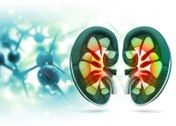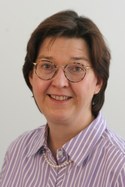FRIAS Express November 2016
Dear FRIAS Community,
The US elections are over, and there is a great need for discussion, not only within the FRIAS Fellow community. At yesterday’s After-Hours Conversation, Fellows and staff met and exchanged their views about the causes and consequences of Donald Trump’s election as the new president of the United States. Not least the implications for the American research system have yet to be seen. Without doubt, any higher education and research system is dependent on a society that is open to rational discourse, welcomes international exchange and respects minorities and minority views.
At FRIAS, the work continues and we are glad to report the latest news from the Institute. We hope, this issue of the FRIAS Express provides some positive distraction and wish you a good read.
Please feel free to forward the Express to friends and colleagues. If you would like to subscribe to this newsletter, simply leave your email address here.
 TOP NEWS
TOP NEWS
 Diabetic kidney disease (DKD) is the leading cause of end stage renal disease (ESRD), and its global incidence and prevalence have reached epidemic proportions in recent years. So far there are no effective means to prevent or cure DKD. FRIAS Fellows Harry Holthöfer (City University Dublin, University of Helsinki) and Tobias Huber (University of Freiburg) are the lead partners of a newly established international research consortium (BEAt-DKD), which will analyse the development and treatment of diabetic kidney diseases and aims to identify high-risk patients at an earlier stage. The consortium consists of 28 partners and is funded by the European Union with approx. 30 million euros. More...
Diabetic kidney disease (DKD) is the leading cause of end stage renal disease (ESRD), and its global incidence and prevalence have reached epidemic proportions in recent years. So far there are no effective means to prevent or cure DKD. FRIAS Fellows Harry Holthöfer (City University Dublin, University of Helsinki) and Tobias Huber (University of Freiburg) are the lead partners of a newly established international research consortium (BEAt-DKD), which will analyse the development and treatment of diabetic kidney diseases and aims to identify high-risk patients at an earlier stage. The consortium consists of 28 partners and is funded by the European Union with approx. 30 million euros. More...
Other recent news
» Sauro Succi, FRIAS Fellow from 2009-2013, has received the prestigious Aneesur Rahman Prize for Computational Physics 2017 “for groundbreaking contributions to the development and application of the Lattice Boltzmann method.” More...
» FRIAS Fellow Manfred Jung and his team have been awarded the PHOENIX Pharmacy Research Prize 2016 for their discovery of an inhibitor for the enzyme sirtuin 2. More...
 LOOKING BACK
LOOKING BACK
This year’s “FRIAS Black Forest Retreat” took place from October 14-15, 2016 in the middle of the Black Forest at Hotel Saigerhöh. Over the course of these two days, all fellows and project groups for the of the Academic Year 2016/17 had the opportunity to get to know each other and exchange views across the disciplines about their ongoing research. In short presentations, everyone introduced their research project to the group and put it up for discussion. On the second day of the retreat, fellows exchanged ideas about possible topics for interdisciplinary colloquia and upcoming Lunch Lectures. During the winter term 2016/17, the Lunch Lectures will focus on “Ignorance – what we don’t know”, and during the summer term 2017 they will approach the topic of “fear” from various disciplinary perspectives. The discussions were very fruitful and resulted in several concrete suggestions for Lunch Lectures and colloquia. Proposals for future colloquia ranged from cognitive approaches to literature, to representations of labour, to the challenges of visualization and modelling. As the “FRIAS Black Forest Retreat” came to a close, FRIAS Fellows and staff were eager for the Academic Year 2016/17 to begin.
Others:
» The first Freiburger Horizonte event this Academic Year focussed on "Migration: Global Challenges and Implications for Germany". Thanks to the highly informative and engaging presentations by FRIAS Fellow Nicola Piper and FRIAS Alumnus Stefan Rother, and the moderation of the discussion by Anna Lipphardt, the event was a full success. For some photo impressions, click here.
» The Lecture Series of the FRIAS Project Group "Language Dynamics across the Life Span" has successfully commenced and was received with great interest by students of the University of Freiburg. For an overview of all upcoming lectures within the series, click here.
 LOOKING AHEAD
LOOKING AHEAD
The new round of FRIAS Lunch Lectures leads us to the frontiers of research and its greatest challenge: ignorance. What is it that we don’t (yet) know and perhaps will never know? What is it that we are not supposed to know or do not want to know?
These are some of the questions the FRIAS Lunch Lectures will address this winter term 2016/17, beginning on November 10, 2016. The lecture series is specifically directed at students. FRIAS Fellows will engage with this topic from various different disciplinary viewpoints, be it the natural and life sciences, literature, political sciences, religious studies, environmental studies or economics. The lecture series will also build on recent research in the fields of “ignorance studies” and “agnotology”. The latter field tackles the "production" of ignorance, for example regarding the dangers of climate change, smoking, fracking or nuclear power.
Every second Thursday from 12:15 – 1:00pm, FRIAS Fellows will give lectures in Lecture Hall 1015, Kollegiengebäude I at the University of Freiburg. The lectures are open to the public and will be held in English. More...
Upcoming Events
» The FRIAS Junior Researcher Conference "Affectivity and Animality. Shifting Boundaries in Phenomenology" will take place from November 17-19, 2016. The main goal of the conference is to open up the significance and the implications of the phenomenological conception of affectivity and animality for current debates in animal ethics, in gender and media theories as well as for many relevant sets of problems in neuroscientific and psychiatric-psychopathological research. More...
» Starting at 4:15 pm on December 14, 2016 in the Pathology/Anatomy Lecture Hall, Nobel Laureate Paul Nurse will give the next Hermann Staudinger Lecture on "Controlling the Cell Cycle". Paul Nurse received the Nobel Prize for Physiology or Medicine in 2001, together with Tim Hunt and Leland Hartwell, "for their discoveries of key regulators of the cell cycle". More...
 PEOPLE AT FRIAS
PEOPLE AT FRIAS

Every month, FRIAS introduces one of the "people in the background", who contribute to the continuous development of the Institute, either as member of the Steering Committee or the Scientific Advisory Board.
This month: Prof. Dr. Leena Bruckner-Tuderman, member of the FRIAS Steering Committee
Leena Kaarina Bruckner-Tuderman was a Senior Fellow and Director of the then FRIAS School of Life Sciences from 2007-2013 and has stayed closely connected to FRIAS ever since. She studied medicine in Oulu, Finland, and after an experimental dissertation in molecular medicine, continued her postdoctoral work in biochemistry in Piscataway, N.J., USA and in structural biology in Basel, Switzerland. After her Habilitation in Zurich, Switzerland and a fellowship at the Swiss National Science Foundation, she was appointed Professor of Dermatology and Venerology at Münster University, Germany. In 2003, she was appointed Professor and Chair of the Department of Dermatology and Venerology at the Medical Center - University of Freiburg and has remained here ever since. In 2012, she was appointed Vice-President of the German Research Foundation (DFG).
During her FRIAS Fellowship, she focused on the “Genetic and Molecular Basis of Human Skin Diseases and the Molecular Mechanisms Leading to Clinical Symptoms”. She has received numerous national and international awards for her scientific work, including the Eva Luise Köhler Research Award, which is awarded to scientists with a record of exceptional research on rare diseases, the Swiss Prof. Dr. Max Cloetta-Research Award, the Friedrich Götz-Foundation Research Award of the Zurich University, Switzerland and many more. Since July 2015, she has been a member of the FRIAS Steering Committee.
 DIRECTOR'S CORNER
DIRECTOR'S CORNER
The sixth round of the Lunch Lectures is starting, this time on the topic of “Ignorance - what we don't know”. Why this topic?
Institutes like FRIAS should always try to push the frontiers of science. One way of doing this is by exposing its fellows to the most challenging questions: questions which force them to reflect upon their research and research field, including both its foundations AND issues and topics that are (better) left alone, but also questions with the potential of reconnecting with and possibly calling into question their own self-understanding and that of their discipline. Ideally, such questions spark discussions within and across disciplines and even beyond the academic world, i.e. in society and in the public sphere.
From this point of view, the most challenging question of all is ignorance: what is it that is not known in any given academic discipline? How can one systematize different kinds and dimensions of ignorance? What are the implications of reflecting on and admitting to ignorance for future research (and funding) agendas, on the one hand, and for society, on the other? After all, science and ignorance are commonly regarded as being mutually exclusive. This also leads to the field of agnotology, which is concerned with the production of ignorance, and thus operates at the boundary between ignorance and secrecy, with science potentially keeping the public and political decision-makers ignorant of potential risks of, e.g., new technologies, laws or reforms. This term's lecture series is only a first step in coming to terms with ignorance, but I am very glad we are taking this step and that a sizable group of final-year B.A. students from the University College Freiburg (UCF) will be part of this adventurous exploration of the unknown.
- FRIAS Express
-
Melden Sie sich für unseren monatlichen Newsletter an:

